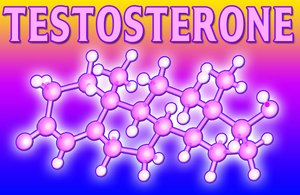Introduction to Omnitrope and Growth Hormone Deficiency
Omnitrope is a biosimilar recombinant human growth hormone (somatropin) used to treat growth failure in children and adults with growth hormone deficiency (GHD). GHD in adults can lead to a variety of health issues, including reduced muscle mass, increased fat mass, and diminished quality of life. In men, GHD can also impact reproductive health, making the study of treatments like Omnitrope particularly relevant.
The Role of Growth Hormone in Male Reproductive Health
Growth hormone plays a crucial role in the regulation of reproductive function in males. It influences the production of insulin-like growth factor-1 (IGF-1), which is vital for spermatogenesis and the maintenance of testicular function. In men with GHD, there is often a noticeable decline in libido, erectile dysfunction, and reduced fertility. Addressing these symptoms is a key concern for patients and healthcare providers alike.
Omnitrope's Mechanism of Action
Omnitrope works by supplementing the body's natural growth hormone levels, thereby mimicking the effects of endogenous growth hormone. By doing so, it helps to restore the balance of hormones that are essential for normal physiological functions, including those related to reproductive health. The drug is administered via subcutaneous injection, typically on a daily basis, and its dosage is tailored to the individual needs of the patient.
Clinical Evidence on Omnitrope and Reproductive Health
Several studies have investigated the effects of Omnitrope on reproductive health in men with GHD. A notable study published in the *Journal of Clinical Endocrinology and Metabolism* found that treatment with Omnitrope led to significant improvements in semen parameters, such as sperm concentration and motility, in men with GHD. Additionally, patients reported enhancements in sexual function and libido, suggesting a positive impact on overall reproductive health.
Potential Side Effects and Considerations
While Omnitrope has shown promise in improving reproductive health, it is not without potential side effects. Common adverse reactions include injection site reactions, headache, and fluid retention. More serious, albeit rare, side effects can include increased intracranial pressure and diabetes mellitus. It is essential for patients to be monitored closely by their healthcare providers to manage any potential complications effectively.
Long-Term Outcomes and Future Research
The long-term effects of Omnitrope on reproductive health in men with GHD are still under investigation. Preliminary data suggest that sustained treatment can lead to lasting improvements in fertility and sexual function. However, more comprehensive, long-term studies are needed to fully understand the benefits and risks associated with prolonged use of Omnitrope.
Conclusion: The Path Forward for Men with GHD
Omnitrope represents a significant advancement in the treatment of growth hormone deficiency, particularly in its potential to improve reproductive health in men. As research continues to evolve, it is hoped that more men with GHD will be able to benefit from this therapy, leading to enhanced quality of life and reproductive outcomes. Patients considering Omnitrope should consult with their healthcare providers to discuss the potential benefits and risks, ensuring a personalized approach to treatment.
In summary, Omnitrope offers a promising avenue for men with growth hormone deficiency to address the challenges associated with reproductive health. By understanding its effects and managing its use carefully, patients can work towards achieving a healthier and more fulfilling life.
Contact Us Today For A Free Consultation

- Omnitrope: Uses, Contraindications, and Precautions for American Males [Last Updated On: February 22nd, 2025] [Originally Added On: February 22nd, 2025]
- Unveiling the Cardiovascular Benefits of Omnitrope in Growth Hormone Deficient American Males [Last Updated On: February 28th, 2025] [Originally Added On: February 28th, 2025]
- Unveiling the Impact of Omnitrope on Cognitive Development in Pediatric Patients [Last Updated On: March 6th, 2025] [Originally Added On: March 6th, 2025]
- Unveiling the Medical Odyssey of Omnitrope: From Synthesis to Treatment [Last Updated On: March 15th, 2025] [Originally Added On: March 15th, 2025]
- Unveiling the Potential of Omnitrope in Treating Pediatric Growth Disorders [Last Updated On: March 16th, 2025] [Originally Added On: March 16th, 2025]
- Unlocking Growth Potential: The Role of Omnitrope in Managing Inflammatory Bowel Disease in Children [Last Updated On: March 16th, 2025] [Originally Added On: March 16th, 2025]
- Unveiling the Therapeutic Potential of Omnitrope in Managing Noonan Syndrome [Last Updated On: March 16th, 2025] [Originally Added On: March 16th, 2025]
- Unveiling the Dermatological Benefits of Omnitrope in Growth Hormone Deficient American Males [Last Updated On: March 16th, 2025] [Originally Added On: March 16th, 2025]
- Unveiling the Therapeutic Potential of Omnitrope in Managing Growth Hormone Deficiency Among American Males with Epilepsy [Last Updated On: March 16th, 2025] [Originally Added On: March 16th, 2025]
- Omnitrope Enhances Growth in American Males with Noonan Syndrome: Clinical Insights [Last Updated On: March 16th, 2025] [Originally Added On: March 16th, 2025]
- Omnitrope: Enhancing Growth in SGA American Male Infants - Efficacy and Safety [Last Updated On: March 18th, 2025] [Originally Added On: March 18th, 2025]
- Omnitrope's Impact on Insulin Sensitivity in American Males with Growth Hormone Deficiency [Last Updated On: March 18th, 2025] [Originally Added On: March 18th, 2025]
- Omnitrope Therapy's Impact on Bone Age in American Male Children: Efficacy and Considerations [Last Updated On: March 19th, 2025] [Originally Added On: March 19th, 2025]
- Omnitrope Therapy: Enhancing Muscle Strength in American Adult Males [Last Updated On: March 20th, 2025] [Originally Added On: March 20th, 2025]
- Omnitrope: Enhancing Growth in Pediatric Endocrinology with FDA-Approved Biosimilar [Last Updated On: March 20th, 2025] [Originally Added On: March 20th, 2025]
- Omnitrope's Impact on Lipid Profiles in American Males with Growth Hormone Deficiency [Last Updated On: March 21st, 2025] [Originally Added On: March 21st, 2025]
- Omnitrope: Enhancing Growth and Final Height in American Boys with GHD [Last Updated On: March 21st, 2025] [Originally Added On: March 21st, 2025]
- Omnitrope: Enhancing Growth in American Boys with Genetic Disorders [Last Updated On: March 21st, 2025] [Originally Added On: March 21st, 2025]
- Omnitrope: Enhancing Growth and Life Quality in Males with Idiopathic Short Stature [Last Updated On: March 21st, 2025] [Originally Added On: March 21st, 2025]
- Omnitrope Therapy Enhances Sleep Quality in American Males with Growth Hormone Deficiency [Last Updated On: March 21st, 2025] [Originally Added On: March 21st, 2025]
- Omnitrope for Growth Hormone Deficiency in American Adolescent Males: Uses and Considerations [Last Updated On: March 21st, 2025] [Originally Added On: March 21st, 2025]
- Omnitrope's Impact on Psychological Well-being in American Men with GHD [Last Updated On: March 22nd, 2025] [Originally Added On: March 22nd, 2025]
- Omnitrope Enhances Life Quality in American Males with Short Bowel Syndrome [Last Updated On: March 22nd, 2025] [Originally Added On: March 22nd, 2025]
- Omnitrope: Treating Growth Hormone Deficiency in American Males with Hypopituitarism [Last Updated On: March 22nd, 2025] [Originally Added On: March 22nd, 2025]
- Omnitrope: Enhancing Life Quality in Male Cancer Survivors with Growth Hormone Deficiency [Last Updated On: March 22nd, 2025] [Originally Added On: March 22nd, 2025]
- Omnitrope Therapy Enhances Growth in Children with Cystic Fibrosis: A Comprehensive Overview [Last Updated On: March 23rd, 2025] [Originally Added On: March 23rd, 2025]
- Omnitrope: Treating Growth Hormone Deficiency in Autoimmune Diseases for American Males [Last Updated On: March 23rd, 2025] [Originally Added On: March 23rd, 2025]
- Omnitrope's Role in Regenerative Medicine for American Males: Growth and Healing Potential [Last Updated On: March 23rd, 2025] [Originally Added On: March 23rd, 2025]
- Omnitrope Therapy: Effects on Renal Function in Pediatric Patients [Last Updated On: March 23rd, 2025] [Originally Added On: March 23rd, 2025]
- Omnitrope: Treating Growth Hormone Deficiency in American Males with Epilepsy [Last Updated On: March 23rd, 2025] [Originally Added On: March 23rd, 2025]
- Omnitrope: Enhancing Life for HIV-Positive American Males with Growth Hormone Deficiency [Last Updated On: March 23rd, 2025] [Originally Added On: March 23rd, 2025]
- Omnitrope: Treating Growth Hormone Deficiency in Obese American Males [Last Updated On: March 23rd, 2025] [Originally Added On: March 23rd, 2025]
- Omnitrope: Advancing GHD Treatment in Diabetic American Males [Last Updated On: March 23rd, 2025] [Originally Added On: March 23rd, 2025]
- Omnitrope's Efficacy in Treating Growth Issues in Pediatric IBD Patients [Last Updated On: March 24th, 2025] [Originally Added On: March 24th, 2025]
- Omnitrope: A Promising Treatment for Growth Hormone Deficiency in American Men [Last Updated On: March 24th, 2025] [Originally Added On: March 24th, 2025]
- Omnitrope: Treating Growth Hormone Deficiency in American Males with Rheumatoid Arthritis [Last Updated On: March 24th, 2025] [Originally Added On: March 24th, 2025]
- Omnitrope Enhances Immune Function in American Males with Growth Hormone Deficiency [Last Updated On: March 24th, 2025] [Originally Added On: March 24th, 2025]
- Omnitrope Therapy Enhances Skin Health in Pediatric American Males [Last Updated On: March 25th, 2025] [Originally Added On: March 25th, 2025]
- Omnitrope: Treating Growth Failure in Children with Chronic Illnesses [Last Updated On: March 25th, 2025] [Originally Added On: March 25th, 2025]
- Omnitrope: Advancing Treatment for GHD in American Males with Hemophilia [Last Updated On: March 25th, 2025] [Originally Added On: March 25th, 2025]
- Omnitrope's Impact on Hematological Parameters in American Males with GHD [Last Updated On: March 25th, 2025] [Originally Added On: March 25th, 2025]
- Omnitrope: A Promising Treatment for Osteoporosis in Men with Growth Hormone Deficiency [Last Updated On: March 26th, 2025] [Originally Added On: March 26th, 2025]
- Omnitrope's Efficacy in Enhancing Growth in IUGR-Affected American Male Children [Last Updated On: March 26th, 2025] [Originally Added On: March 26th, 2025]
- Omnitrope Therapy's Impact on Gastrointestinal Health in American Male Children [Last Updated On: March 26th, 2025] [Originally Added On: March 26th, 2025]
- Omnitrope: Treating Growth Hormone Deficiency in Males with PCOS [Last Updated On: March 26th, 2025] [Originally Added On: March 26th, 2025]
- Omnitrope: Treating Growth Hormone Deficiency and Chronic Fatigue in American Males [Last Updated On: March 26th, 2025] [Originally Added On: March 26th, 2025]
- Omnitrope's Impact on Neurological Function in American Males with GHD [Last Updated On: March 26th, 2025] [Originally Added On: March 26th, 2025]
- Omnitrope's Impact on Liver Function in American Men with Growth Hormone Deficiency [Last Updated On: March 26th, 2025] [Originally Added On: March 26th, 2025]
- Omnitrope: Enhancing Growth and Quality of Life in Males with Down Syndrome [Last Updated On: March 27th, 2025] [Originally Added On: March 27th, 2025]
- Omnitrope: Managing GHD in American Males with Asthma [Last Updated On: March 27th, 2025] [Originally Added On: March 27th, 2025]
- Omnitrope's Impact on Growth and Development in Children with Autism Spectrum Disorders [Last Updated On: March 27th, 2025] [Originally Added On: March 27th, 2025]
- Omnitrope: Enhancing Growth and Metabolic Health in GHD and Thyroid Disorders [Last Updated On: March 27th, 2025] [Originally Added On: March 27th, 2025]
- Omnitrope Enhances Respiratory Function in American Men with Growth Hormone Deficiency [Last Updated On: March 27th, 2025] [Originally Added On: March 27th, 2025]
- Omnitrope Therapy's Impact on Dental Health in Children: A Comprehensive Overview [Last Updated On: March 28th, 2025] [Originally Added On: March 28th, 2025]
- Omnitrope: Enhancing Growth in Children with Congenital Heart Disease [Last Updated On: March 28th, 2025] [Originally Added On: March 28th, 2025]
- Omnitrope: Enhancing Growth in Sickle Cell Disease and Hormone Deficiency [Last Updated On: March 28th, 2025] [Originally Added On: March 28th, 2025]
- Omnitrope's Impact on Growth Hormone Deficiency in American Males with MS [Last Updated On: March 28th, 2025] [Originally Added On: March 28th, 2025]
- Omnitrope Therapy Enhances Eye Health in Growth Hormone Deficient Children [Last Updated On: March 28th, 2025] [Originally Added On: March 28th, 2025]
- Omnitrope Therapy's Impact on Auditory Health in Pediatric Patients: Insights for American Males [Last Updated On: March 30th, 2025] [Originally Added On: March 30th, 2025]
- Omnitrope: Enhancing Life for American Males with Growth Hormone Deficiency [Last Updated On: April 3rd, 2025] [Originally Added On: April 3rd, 2025]
- Omnitrope: Enhancing Life for American Males with GHD and Chronic Pain [Last Updated On: April 4th, 2025] [Originally Added On: April 4th, 2025]
- Omnitrope: Enhancing Life Quality in American Males with GHD and Fibromyalgia [Last Updated On: April 4th, 2025] [Originally Added On: April 4th, 2025]
- Omnitrope Therapy: Enhancing Growth and Musculoskeletal Health in American Boys [Last Updated On: April 5th, 2025] [Originally Added On: April 5th, 2025]
- Omnitrope Enhances Skin Health in American Men with Growth Hormone Deficiency [Last Updated On: April 6th, 2025] [Originally Added On: April 6th, 2025]
- Omnitrope's Impact on GHD and Psoriasis in American Males: Efficacy and Considerations [Last Updated On: April 6th, 2025] [Originally Added On: April 6th, 2025]
- Omnitrope's Role in Managing GHD in American Males with Eczema: Efficacy and Safety [Last Updated On: April 7th, 2025] [Originally Added On: April 7th, 2025]
- Omnitrope's Efficacy in Treating Growth Delays from Allergic Rhinitis in American Boys [Last Updated On: April 9th, 2025] [Originally Added On: April 9th, 2025]
- Omnitrope Therapy: Effects on Growth and Urological Health in Children [Last Updated On: April 10th, 2025] [Originally Added On: April 10th, 2025]
- Omnitrope's Psychiatric Impacts on American Males with Growth Hormone Deficiency [Last Updated On: April 10th, 2025] [Originally Added On: April 10th, 2025]
- Omnitrope Therapy: Enhancing Nutritional Health in American Male Children with GHD [Last Updated On: April 10th, 2025] [Originally Added On: April 10th, 2025]
- Omnitrope's Role in Treating GHD in American Males with Schizophrenia: Efficacy and Care [Last Updated On: April 11th, 2025] [Originally Added On: April 11th, 2025]
- Omnitrope's Impact on Geriatric Health in American Males: Enhancing Life Quality [Last Updated On: April 11th, 2025] [Originally Added On: April 11th, 2025]
- Omnitrope Therapy Enhances Bone Health in Aging American Males: A Comprehensive Overview [Last Updated On: April 12th, 2025] [Originally Added On: April 12th, 2025]
- Omnitrope's Role in Treating Growth Hormone Deficiency in American Males with Anorexia [Last Updated On: April 12th, 2025] [Originally Added On: April 12th, 2025]
- Omnitrope's Role in Treating GHD in American Males with Alzheimer's [Last Updated On: April 15th, 2025] [Originally Added On: April 15th, 2025]
- Omnitrope Enhances Recovery in American Males with Post-Surgical Growth Hormone Deficiency [Last Updated On: April 17th, 2025] [Originally Added On: April 17th, 2025]
- Omnitrope: A Promising Therapy for Growth Hormone Deficiency in Parkinson's Disease [Last Updated On: April 17th, 2025] [Originally Added On: April 17th, 2025]
- Omnitrope: Enhancing Life for American Males with TBI-Induced GHD [Last Updated On: April 18th, 2025] [Originally Added On: April 18th, 2025]
- Omnitrope Therapy: Enhancing Surgical Recovery in American Male Children [Last Updated On: April 18th, 2025] [Originally Added On: April 18th, 2025]
- Omnitrope's Efficacy in Enhancing Growth and Quality of Life in Children with CP [Last Updated On: April 19th, 2025] [Originally Added On: April 19th, 2025]
Word Count: 531



















